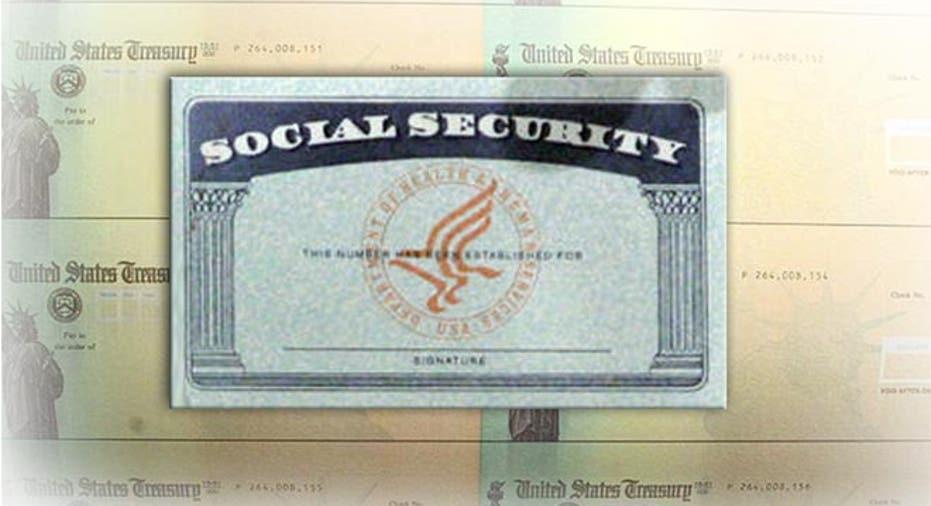A Government Pension Could Reduce Your Social Security - Part 2

As explained in last week’s column, most people who are entitled to a government pension when they retire will not see any reduction in any Social Security benefit they might have also earned.
What’s With the WEP?
The so-called “Windfall Elimination Provision,” or WEP, only applies when you worked for a government employer- federal, state, municipal, school district- that did not deduct Social Security tax from your paychecks and you also earned 40 credits of Social Security thanks to other jobs where you did pay FICA tax. In this case, your Social Security benefit might be reduced.(1)
This is not done as “punishment,” but rather with the goal of “fairness.” It’s designed to somewhat correct for an unintentional result of the way Social Security benefits are calculated.
For instance, take the case of two individuals who have both worked in the private sector. Jim has had Social Security tax withheld from his paychecks for 35 years. On the other hand, for 25 years Frank worked for the State of California, and never contributed to Social Security. When he retired from that job, he worked at a privately-owned company and paid Social Security tax for 10 years.
Jim’s government jobs came with low-to-modest salaries. However, Frank’s second-career employer paid him quite well. Each individual has earned 40 credits of Social Security (you can earn a maximum of 4 credits/year), so both are entitled to a benefit.
Without the adjustment made by the WEP, even though Frank only paid into Social Security for 10 years, he could conceivably get a benefit equal to what Jim would get after contributing to Social Security for 35 years.
What’s the WEP Reduction?
The reduction in your Social Security benefit is affected by several factors, including how many years you contributed to Social Security (i.e. held a “covered” job), whether your earnings were high enough to be considered “substantial” and the year in which you eligible for a benefit. Details are explained here: http://www.socialsecurity.gov/planners/retire/wep-chart.html
In addition, there is an online calculator that will help you estimate what- if any- impact your government pension might have on your Social Security benefit: http://www.ssa.gov/planners/retire/anyPiaWepjs04.html. It requires you to enter your earnings for each year you paid into Social Security. You can find this information on your Social Security statement. If you don’t receive one by mail, you can create an account at http://www.ssa.gov/ and view this online.
Your Government Pension Affects Your Spouse Benefit
Let’s say you worked in government jobs all your life and none of them required that you contribute to Social Security. Your spouse, however, paid into Social Security for 40 years.
Thanks to the Government Pension Offset, or GPO, your Social Security spousal or widow(er) benefit will be reduced by 2/3rds of the value of your government pension.(2)
Consider yourself lucky. Here’s why:
Suppose both members of a couple are only receiving a benefit from Social Security. John is getting $1,000/month and so is Mary. When John dies, Mary does not continue to receive both checks. Instead, she will receive whichever amount is higher. Rules that date back to 1940 require that Mary’s widow’s benefit ($1,000) be offset by her own Social Security benefit. As a result, Mary will continue to receive a benefit of $1,000/month as a widow.
On the other hand, assume that Linda was a Texas school teacher, never paid into Social Security and is receiving $1,000/month as her teacher’s pension. Before his death, Bob was getting $1,000 from Social Security. Since the GPO reduction is not dollar-for-dollar, Linda will receive a widow’s benefit of $340 from Social Security ($1,000- $660). Her total income will be $1,340.
You’ll find a GPO calculator at http://www.socialsecurity.gov/planners/retire/gpo-calc.html.
You Earned Social Security, Your Spouse Had a Government Pension
The final scenario that can occur is when one spouse is receiving Social Security and inherits a government pension when their partner dies. In other words, the pension continues to pay a benefit to the surviving spouse even though the individual who actually earned the pension is deceased.
In this case, there is no impact on the amount the surviving spouse receives from Social Security. According to Social Security spokesperson Dorothy Clark, the definition of “pension” under the Government Pension Offset, does not include a “survivor annuity.”



















